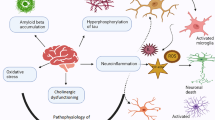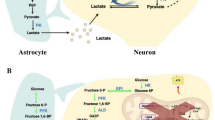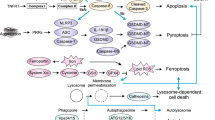Abstract
Eukaryotic initiation factor 2 (eIF2α) pathway is overactivated in Alzheimer disease and is probably associated with synaptic and memory deficiencies. EIF2α protein is principally in charge of the regulation of protein synthesis in eukaryotic cells. Four kinases responsible for eIF2α phosphorylation at ser-51 are: General control non-derepressible-2 kinase (GCN2), double-stranded RNA-activated protein kinase (PKR), PKR-like endoplasmic reticulum kinase (PERK), and heme-regulated inhibitor kinase (HRI) are the four kinases. They lead to reduced levels of general translation and paradoxical increase of stress-responsive mRNAs expression including the B-secretase (BACE1) and the transcriptional modulator activating transcription factor 4 (ATF4), which in turn accelerates the beta-amyloidogenesis, tau phosphorylation, proapoptotic pathway induction and autophagy elements formation leading to the main pathological hallmarks of AD. Findings suggest that genetic or pharmacological inhibition of correspondent kinases can restore memory and prevent neurodegeneration. This implies that inhibition of eIF2α phosphorylation through respondent kinases is indeed a feasible prospect of clinical application. This review discusses recent therapeutic approaches targeting eIF2α pathway and provides an overview of the links between correspondent kinases overactivation with neurodegeneration in AD.




Similar content being viewed by others
References
Aarti I, Rajesh K, Ramaiah KVA (2010) Phosphorylation of eIF2 alpha in Sf9 cells: a stress, survival and suicidal signal. Apoptosis 15:679–692. https://doi.org/10.1007/s10495-010-0474-z
Avery J, Etzion S, Debosch BJ et al (2010) TRB3 function in cardiac endoplasmic reticulum stress. Circ Res 106:1516–1523. https://doi.org/10.1161/CIRCRESAHA.109.211920
Baird TD, Wek RC (2012) Eukaryotic initiation factor 2 phosphorylation and translational control in metabolism. Adv Nutr 3:307–321. https://doi.org/10.3945/an.112.002113
Baleriola J, Walker CA, Jean YY, Crary JF, Troy CM, Nagy PL, Hengst U (2014) Axonally synthesized ATF4 transmits a neurodegenerative signal across brain regions. Cell. 158:1159–1172. https://doi.org/10.1016/j.cell.2014.07.001
Ballatore C, Lee VMY, Trojanowski JQ (2007) Tau-mediated neurodegeneration in Alzheimer’s disease and related disorders. Nat Rev Neurosci 8:663–672
Baltzis D, Pluquet O, Papadakis AI, Kazemi S, Qu LK, Koromilas AE (2007) The eIF2α kinases PERK and PKR activate glycogen synthase kinase 3 to promote the proteasomal degradation of p53. J Biol Chem 282:31675–31687. https://doi.org/10.1074/jbc.M704491200
Bose A, Mouton-Liger F, Paquet C, et al (2011) Modulation of tau phosphorylation by the kinase PKR: Implications in Alzheimer’s disease. Brain Pathol. https://doi.org/10.1111/j.1750-3639.2010.00437.x
Bullido MJ, Martínez-García A, Tenorio R, Sastre I, Muñoz DG, Frank A, Valdivieso F (2008) Double stranded RNA activated EIF2 α kinase (EIF2AK2; PKR) is associated with Alzheimer’s disease. Neurobiol Aging 29:1160–1166. https://doi.org/10.1016/j.neurobiolaging.2007.02.023
Cao SS, Kaufman RJ (2012) Unfolded protein response. Curr Biol 22:R622–R626. https://doi.org/10.1016/j.cub.2012.07.004
Carret-Rebillat AS, Pace C, Gourmaud S, Ravasi L, Montagne-Stora S, Longueville S, Tible M, Sudol E, Chang RCC, Paquet C, Mouton-Liger F, Hugon J (2015) Neuroinflammation and Aβ accumulation linked to systemic inflammation are decreased by genetic PKR down-regulation. Sci Rep 5. https://doi.org/10.1038/srep08489
Chang RCC, Wong AKY, Ng HK, Hugon J (2002) Phosphorylation of eukaryotic initiation factor-2?? (eIF2??) is associated with neuronal degeneration in Alzheimer’s disease. Neuroreport. 13:2429–2432. https://doi.org/10.1097/00001756-200212200-00011
Chaveroux C, Lambert-Langlais S, Cherasse Y, Averous J, Parry L, Carraro V, Jousse C, Maurin AC, Bruhat A, Fafournoux P (2010) Molecular mechanisms involved in the adaptation to amino acid limitation in mammals. Biochimie 92:736–745
Chen A, Muzzio IA, Malleret G, Bartsch D, Verbitsky M, Pavlidis P, Yonan AL, Vronskaya S, Grody MB, Cepeda I, Gilliam TC, Kandel ER (2003) Inducible enhancement of memory storage and synaptic plasticity in transgenic mice expressing an inhibitor of ATF4 (CREB-2) and C/EBP proteins. Neuron 39:655–669
Clemens MJ (2001) Initiation factor eIF2α phosphorylation in stress responses and apoptosis
Costa-Mattioli M, Gobert D, Harding H, Herdy B, Azzi M, Bruno M, Bidinosti M, Ben Mamou C, Marcinkiewicz E, Yoshida M, Imataka H, Cuello AC, Seidah N, Sossin W, Lacaille JC, Ron D, Nader K, Sonenberg N (2005) Translational control of hippocampal synaptic plasticity and memory by the eIF2α kinase GCN2. Nature. 436:1166–1170. https://doi.org/10.1038/nature03897
Costa-Mattioli M, Gobert D, Stern E, Gamache K, Colina R, Cuello C, Sossin W, Kaufman R, Pelletier J, Rosenblum K, Krnjević K, Lacaille JC, Nader K, Sonenberg N (2007) eIF2α phosphorylation Bidirectionally regulates the switch from short- to long-term synaptic plasticity and memory. Cell. 129:195–206. https://doi.org/10.1016/j.cell.2007.01.050
Dehghani R, Rahmani F, Rezaei N (2018) MicroRNA in Alzheimer’s disease revisited: implications for major neuropathological mechanisms. Rev Neurosci 29:161–182. https://doi.org/10.1515/revneuro-2017-0042
Devi L, Ohno M (2014) PERK mediates eIF2α phosphorylation responsible for BACE1 elevation, CREB dysfunction and neurodegeneration in a mouse model of Alzheimer’s disease. Neurobiol Aging 35:2272–2281. https://doi.org/10.1016/j.neurobiolaging.2014.04.031
Devi L, Ohno M (2013) Deletion of the eIF2α kinase GCN2 fails to rescue the memory decline associated with Alzheimer’s disease. PLoS One 8:e77335. https://doi.org/10.1371/journal.pone.0077335
Dumurgier J, Mouton-Liger F, Lapalus P, Prevot M, Laplanche JL, Hugon J, Paquet C, for the Groupe d’Investigation du Liquide Cephalorachidien (GIL) Study Network (2013) Cerebrospinal fluid PKR level predicts cognitive decline in Alzheimer’s disease. PLoS One 8. https://doi.org/10.1371/journal.pone.0053587
Feng Z, Hu W, De Stanchina E et al (2007) The regulation of AMPK β1, TSC2, and PTEN expression by p53: stress, cell and tissue specificity, and the role of these gene products in modulating the IGF-1-AKT-mTOR pathways. Cancer Res 67:3043–3053. https://doi.org/10.1158/0008-5472.CAN-06-4149
Galehdar Z, Swan P, Fuerth B, Callaghan SM, Park DS, Cregan SP (2010) Neuronal apoptosis induced by endoplasmic reticulum stress is regulated by ATF4-CHOP-mediated induction of the Bcl-2 homology 3-only member PUMA. J Neurosci 30:16938–16948. https://doi.org/10.1523/jneurosci.1598-10.2010
Gao H, Yan P, Zhang S, Nie S, Huang F, Han H, Deng Q, Huang Q, Yang W, Wu H, Yao P, Ye K, Xu J, Liu L (2016) Chronic alpha-linolenic acid treatment alleviates age-associated neuropathology: roles of PERK/eIF2α signaling pathway. Brain Behav Immun 57:314–325. https://doi.org/10.1016/j.bbi.2015.09.012
Halliday M, Radford H, Zents KAM, Molloy C, Moreno JA, Verity NC, Smith E, Ortori CA, Barrett DA, Bushell M, Mallucci GR (2017) Repurposed drugs targeting eIF2α-P-mediated translational repression prevent neurodegeneration in mice. Brain. 140:1768–1783. https://doi.org/10.1093/brain/awx074
Hamanaka RB, Bennett BS, Cullinan SB, Diehl JA (2005) PERK and GCN2 contribute to eIF2α phosphorylation and cell cycle arrest after activation of the unfolded protein response pathway. Mol Biol Cell 16:5493–5501. https://doi.org/10.1091/mbc.E05-03-0268
Hetz C, Chevet E, Harding HP (2013) Targeting the unfolded protein response in disease. Nat Rev Drug Discov 12:703–719
Hinnebusch AG (2005) Translational regulation of GCN4 and the general amino acid control of yeast. Annu Rev Microbiol 59:407–450. https://doi.org/10.1146/annurev.micro.59.031805.133833
Hoozemans JJM, Van Haastert ES, Nijholt DAT et al (2009) The unfolded protein response is activated in pretangle neurons in alzheimer’s disease hippocampus. Am J Pathol 174:1241–1251. https://doi.org/10.2353/ajpath.2009.080814
Hwang KD, Bak MS, Kim SJ, Rhee S, Lee YS (2017) Restoring synaptic plasticity and memory in mouse models of Alzheimer’s disease by PKR inhibition. Mol Brain 10:57. https://doi.org/10.1186/s13041-017-0338-3
ILL-Raga G, Tajes M, Busquets-García A et al (2015) Physiological control of nitric oxide in neuronal BACE1 translation by Heme-regulated eIF2α kinase HRI induces synaptogenesis. Antioxid Redox Signal 22:1295–1307. https://doi.org/10.1089/ars.2014.6080
Jiang Z, Belforte JE, Lu Y, Yabe Y, Pickel J, Smith CB, Je HS, Lu B, Nakazawa K (2010) eIF2 phosphorylation-dependent translation in CA1 pyramidal cells impairs hippocampal memory consolidation without affecting general translation. J Neurosci 30:2582–2594. https://doi.org/10.1523/jneurosci.3971-09.2010
Kim HS, Choi Y, Shin KY, Joo Y, Lee YK, Jung SY, Suh YH, Kim JH (2007) Swedish amyloid precursor protein mutation increases phosphorylation of eIF2α in vitro and in vivo. J Neurosci Res 85:1527–1537. https://doi.org/10.1002/jnr.21267
Korb E, Finkbeiner S (2011) Arc in synaptic plasticity: from gene to behavior. Trends Neurosci 34:591–598
Lee SB, Rodríguez D, Rodríguez JR, Esteban M (1997) The apoptosis pathway triggered by the interferon-induced protein kinase PKR requires the third basic domain, initiates upstream of bcl-2, and involves ICE-like proteases. Virology. 231:81–88. https://doi.org/10.1006/viro.1997.8494
Lewerenz J, Maher P (2009) Basal levels of eIF2α phosphorylation determine cellular antioxidant status by regulating ATF4 and xCT expression. J Biol Chem 284:1106–1115. https://doi.org/10.1074/jbc.M807325200
Ma T, Trinh MA, Wexler AJ, Bourbon C, Gatti E, Pierre P, Cavener DR, Klann E (2013) Suppression of eIF2α kinases alleviates Alzheimer’s disease-related plasticity and memory deficits. Nat Neurosci 16:1299–1305. https://doi.org/10.1038/nn.3486
Mitsuda T, Hayakawa Y, Itoh M, Ohta K, Nakagawa T (2007) ATF4 regulates γ-secretase activity during amino acid imbalance. Biochem Biophys Res Commun 352:722–727. https://doi.org/10.1016/j.bbrc.2006.11.075
Morel M, Couturier J, Lafay-Chebassier C, Paccalin M, Page G (2009) PKR, the double stranded RNA-dependent protein kinase as a critical target in Alzheimer’s disease. J Cell Mol Med 13:1476–1488. https://doi.org/10.1111/j.1582-4934.2009.00849.x
Moreno JA, Halliday M, Molloy C, Radford H, Verity N, Axten JM, Ortori CA, Willis AE, Fischer PM, Barrett DA, Mallucci GR (2013) Oral treatment targeting the unfolded protein response prevents neurodegeneration and clinical disease in prion-infected mice. Sci Transl Med 5:206ra138. https://doi.org/10.1126/scitranslmed.3006767
Mouton-Liger F, Paquet C, Dumurgier J, Bouras C, Pradier L, Gray F, Hugon J (2012) Oxidative stress increases BACE1 protein levels through activation of the PKR-eIF2α pathway. Biochim Biophys Acta - Mol Basis Dis 1822:885–896. https://doi.org/10.1016/j.bbadis.2012.01.009
Ohno M (2014) Roles of eIF2α kinases in the pathogenesis of Alzheimer’s disease. Front Mol Neurosci 7. https://doi.org/10.3389/fnmol.2014.00022
Onuki R, Bando Y, Suyama E, Katayama T, Kawasaki H, Baba T, Tohyama M, Taira K (2004) An RNA-dependent protein kinase is involved in tunicamycin-induced apoptosis and Alzheimer’s disease. EMBO J 23:959–968. https://doi.org/10.1038/sj.emboj.7600049
Onyango I, Khan S (2006) Oxidative stress, mitochondrial dysfunction, and stress signaling in Alzheimers disease. Curr Alzheimer Res 3:339–349. https://doi.org/10.2174/156720506778249489
Onyango I, Research SK-CA (2006) Undefined oxidative stress, mitochondrial dysfunction, and stress signaling in Alzheimer’s disease. ingentaconnect.com
Pavitt GD, Yang W, Hinnebusch AG (1997) Homologous segments in three subunits of the guanine nucleotide exchange factor eIF2B mediate translational regulation by phosphorylation of eIF2. Mol Cell Biol 17:1298–1313. https://doi.org/10.1128/mcb.17.3.1298
Peel AL (2004) PKR activation in neurodegenerative disease. J Neuropathol Exp Neurol 63:97–105
Peel AL, Bredesen DE (2003) Activation of the cell stress kinase PKR in Alzheimer’s disease and human amyloid precursor protein transgenic mice. Neurobiol Dis 14:52–62. https://doi.org/10.1016/S0969-9961(03)00086-X
Radford H, Moreno JA, Verity N, Halliday M, Mallucci GR (2015) PERK inhibition prevents tau-mediated neurodegeneration in a mouse model of frontotemporal dementia. Acta Neuropathol 130:633–642. https://doi.org/10.1007/s00401-015-1487-z
Rosenberg T, Gal-Ben-Ari S, Dieterich DC, Kreutz MR, Ziv NE, Gundelfinger ED, Rosenblum K (2014) The roles of protein expression in synaptic plasticity and memory consolidation. Front Mol Neurosci 7
Rouschop KMA, Van Den Beucken T, Dubois L et al (2010) The unfolded protein response protects human tumor cells during hypoxia through regulation of the autophagy genes MAP1LC3B and ATG5. J Clin Invest 120:127–141. https://doi.org/10.1172/JCI40027
Sathya M, Premkumar P, Karthick C et al (1970) BACE1 in Alzheimer’s disease. Clin Chim Acta
Segev Y, Barrera I, Ounallah-Saad H, Wibrand K, Sporild I, Livne A, Rosenberg T, David O, Mints M, Bramham CR, Rosenblum K (2015) PKR inhibition rescues memory deficit and ATF4 overexpression in ApoE 4 human replacement mice. J Neurosci 35:12986–12993. https://doi.org/10.1523/jneurosci.5241-14.2015
Segev Y, Michaelson DM, Rosenblum K (2013) ApoE ε4 is associated with eIF2α phosphorylation and impaired learning in young mice. Neurobiol Aging 34:863–872. https://doi.org/10.1016/j.neurobiolaging.2012.06.020
Sidrauski C, Acosta-Alvear D, Khoutorsky A, Vedantham P, Hearn BR, Li H, Gamache K, Gallagher CM, Ang KKH, Wilson C, Okreglak V, Ashkenazi A, Hann B, Nader K, Arkin MR, Renslo AR, Sonenberg N, Walter P (2013) Pharmacological brake-release of mRNA translation enhances cognitive memory. Elife. 2. https://doi.org/10.7554/eLife.00498
Tible M, Mouton Liger F, Schmitt J, Giralt A, Farid K, Thomasseau S, Gourmaud S, Paquet C, Rondi Reig L, Meurs E, Girault JA, Hugon J (2019) PKR knockout in the 5xFAD model of Alzheimer’s disease reveals beneficial effects on spatial memory and brain lesions. Aging Cell 18:e12887. https://doi.org/10.1111/acel.12887
Trinh MA, Kaphzan H, Wek RC, Pierre P, Cavener DR, Klann E (2012) Brain-specific disruption of the eIF2α kinase PERK decreases ATF4 expression and impairs behavioral flexibility. Cell Rep 1:676–688. https://doi.org/10.1016/j.celrep.2012.04.010
Verfaillie T, Rubio N, Garg AD, Bultynck G, Rizzuto R, Decuypere JP, Piette J, Linehan C, Gupta S, Samali A, Agostinis P (2012) PERK is required at the ER-mitochondrial contact sites to convey apoptosis after ROS-based ER stress. Cell Death Differ 19:1880–1891. https://doi.org/10.1038/cdd.2012.74
Wei N, Zhu LQ, Liu D (2015) ATF4: a novel potential therapeutic target for Alzheimer’s disease. Mol Neurobiol 52:1765–1770
Wek RC, Jiang HY, Anthony TG (2006) Coping with stress: EIF2 kinases and translational control. In: Biochemical Society Transactions. Portland Press Ltd, pp 7–11
Yoshizawa T, Hinoi E, Dae YJ et al (2009) The transcription factor ATF4 regulates glucose metabolism in mice through its expression in osteoblasts. J Clin Invest 119:2807–2817. https://doi.org/10.1172/JCI39366
Zhang J-S, Zhou S-F, Wang Q, Guo JN, Liang HM, Deng JB, He WY (2016a) Gastrodin suppresses BACE1 expression under oxidative stress condition via inhibition of the PKR/eIF2α pathway in Alzheimer’s disease. Neuroscience 325:1–9. https://doi.org/10.1016/j.neuroscience.2016.03.024
Zhang JS, Zhou SF, Wang Q, Guo JN, Liang HM, Deng JB, He WY (2016b) Gastrodin suppresses BACE1 expression under oxidative stress condition via inhibition of the PKR/eIF2α pathway in Alzheimer’s disease. Neuroscience. 325:1–9. https://doi.org/10.1016/j.neuroscience.2016.03.024
Author information
Authors and Affiliations
Corresponding author
Ethics declarations
Conflict of interest
Authors have no conflicts of interests to declare.
Additional information
Publisher’s note
Springer Nature remains neutral with regard to jurisdictional claims in published maps and institutional affiliations.
Highlights
• Chronic phosphorylation of eIF2α pathway due to correspondent kinases overactivation is harmful to neuronal plasticity and memory formation.
• Genetic or pharmacological inhibition of eIF2α pathway activity can restore memory and prevent neurodegeneration.
• Gastrodin is capable of Suppressing BACE1 expression under oxidative stress condition via inhibition of the PKR/eIF2α signaling pathway in AD.
• BACE1 translation is regulated by NO through HRI.
• Fine-tuning the eIF2α inhibition genetically or by using the repurposed drugs like Trazodone or dibenzoylmethane (DBM) can be a promising therapeutic target for AD.
Rights and permissions
About this article
Cite this article
Moradi Majd, R., Mayeli, M. & Rahmani, F. Pathogenesis and promising therapeutics of Alzheimer disease through eIF2α pathway and correspondent kinases. Metab Brain Dis 35, 1241–1250 (2020). https://doi.org/10.1007/s11011-020-00600-8
Received:
Accepted:
Published:
Issue Date:
DOI: https://doi.org/10.1007/s11011-020-00600-8




